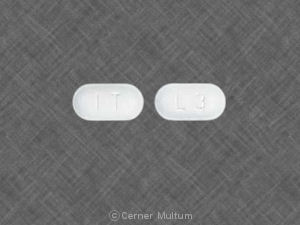Boniva Dosage
Generic name: IBANDRONATE SODIUM 3mg in 3mL
Dosage form: injection, solution
Drug class: Bisphosphonates
Medically reviewed by Drugs.com. Last updated on Jan 10, 2025.
Important Administration Instructions
BONIVA Injection must be administered intravenously only by a health care professional. Care must be taken not to administer intra-arterially or paravenously as this could lead to tissue damage.
- Appropriate medical support and monitoring measures should be readily available when BONIVA Injection is administered. If anaphylactic or other severe hypersensitivity/allergic reactions occur, immediately discontinue the injection and initiate appropriate treatment.
- Visually inspect the liquid in the prefilled syringe for particulate matter and discoloration before administration. Do not use prefilled syringes with particulate matter or discoloration.
- Administer only with the enclosed needle.
- Discard any unused portion.
- Do not mix with calcium-containing solutions or other intravenously administered drugs.
- Prefilled syringes are single-dose only.
Dosage Information
The recommended dose of BONIVA Injection for the treatment of postmenopausal osteoporosis is 3 mg every 3 months administered intravenously over a period of 15 to 30 seconds. Do not administer more frequently than once every 3 months.
Laboratory Testing and Oral Examination Prior to Administration
Prior to administration of each dose obtain a serum creatinine. Given that bisphosphonates have been associated with osteonecrosis of the jaw (ONJ), perform a routine oral examination prior to administration of BONIVA Injection.
Calcium and Vitamin D Supplementation
Instruct patients to take supplemental calcium and vitamin D if their dietary intake is inadequate.
Dosing After Missed Dose
If the dose is missed, administer as soon as it can be re-scheduled. Thereafter, BONIVA Injection should be scheduled every 3 months from the date of the last injection.
Dosage Modifications in Patients with Renal Impairment
Do not administer to patients with severe renal impairment (creatinine clearance less than 30 mL/minute). No dose adjustment is necessary for patients with mild or moderate renal impairment (creatinine clearance greater than or equal to 30 mL/min).
Frequently asked questions
More about Boniva (ibandronate)
- Check interactions
- Compare alternatives
- Reviews (99)
- Drug images
- Side effects
- Patient tips
- During pregnancy
- FDA approval history
- Drug class: bisphosphonates
- Breastfeeding
- En español
Patient resources
- Boniva drug information
- Boniva (Ibandronate Intravenous) (Advanced Reading)
- Boniva (Ibandronate Oral) (Advanced Reading)
Professional resources
Related treatment guides
See also:
Further information
Always consult your healthcare provider to ensure the information displayed on this page applies to your personal circumstances.


